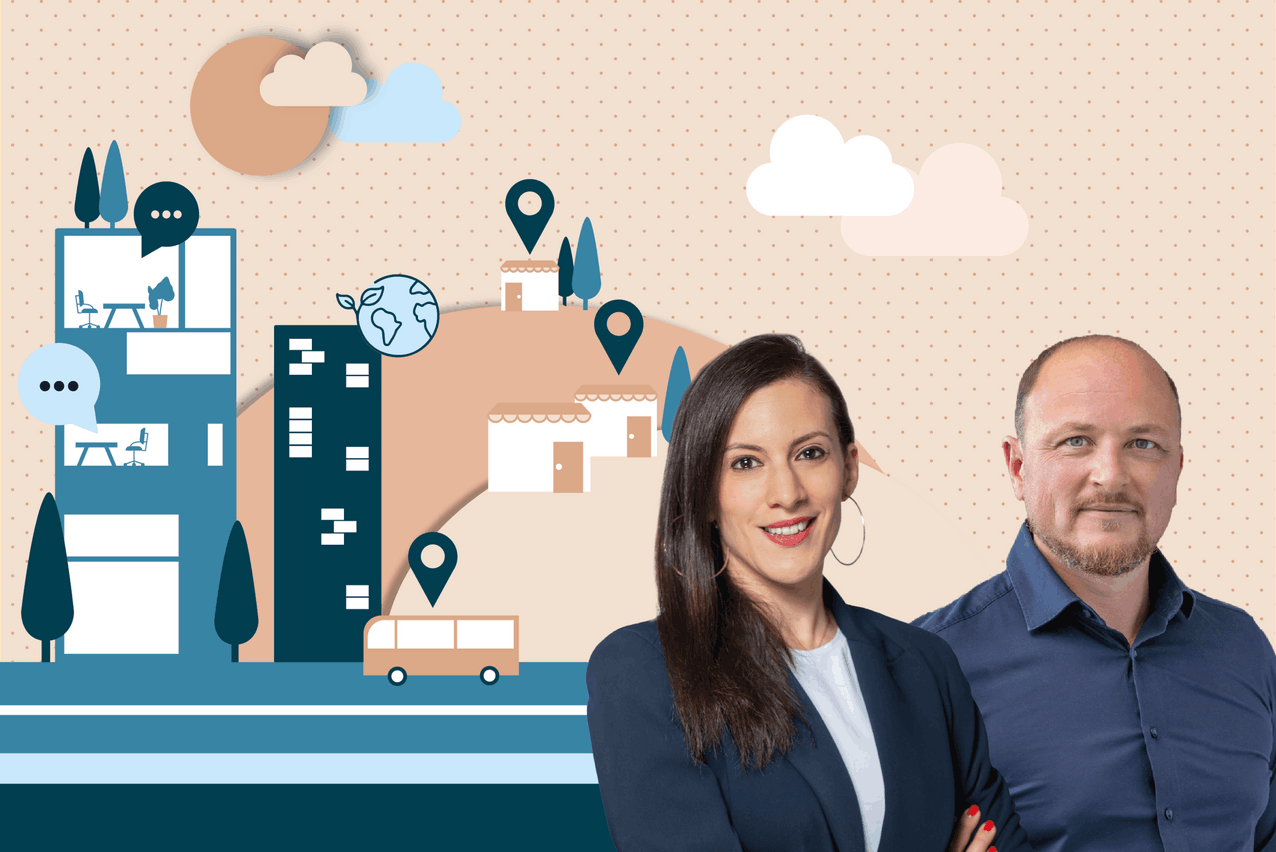A change of address often stems from a strategic reflection initiated years earlier. In many cases, the goal is to provide employees with the best possible work environment, strengthen the company’s attractiveness, and meet stringent sustainability requirements. To address all these aspects, companies can rely on the expertise of JLL Luxembourg.
“The selection of new workspaces is crucial for any company, both to retain employees and to meet sustainability challenges. The main objective is to fulfill employees' expectations, as they now seek a better work-life balance,” explains Emna Rekik, Country Lead at JLL Luxembourg. In the era of hybrid work, the work environment plays a decisive role in attracting and retaining talent. It is essential to offer spaces where employees feel comfortable and enjoy working. Through thoughtful office designs, companies can also foster collaboration dynamics.
Optimizing Commute Times: A Crucial Challenge
Relocating is always a complex project that requires consideration of numerous factors. A few years ago, cost and the prestige of a neighborhood were the primary decision drivers. Today, location choices increasingly align with human resource management challenges.
“As real estate experts, our role is to guide companies throughout their relocation journey—from identifying needs to moving into a new space. We work closely with clients, involving teams in workshops and providing them with decision-support tools. These tools, for instance, help assess the impact of a relocation on commute times based on employees’ home locations, preferred modes of transport, and the opportunities and constraints associated with a specific building,” continues Emna Rekik.
The layout should support the company’s growth dynamics, considering its operations, processes, and ambitions
Ensuring Employee Well-being
New office spaces must also align with employees’ evolving well-being expectations. Before committing to a well-located building, it is crucial to assess its potential.
“The layout should support the company’s growth dynamics, considering its operations, processes, and ambitions. As hybrid work becomes the norm, it’s increasingly important to encourage employees to come to the office, reconnect with colleagues, and collaborate on projects,” explains Alain Clarinval, Head of Tétris Design&Build Luxembourg, a JLL Group entity specializing in office space design. “Our local expertise and deep understanding of global trends help companies explore options, broaden their perspectives, and make informed decisions.”
Diverse and Welcoming Office Spaces
Identified needs are translated into a structured plan that guides future office designs.
“Office spaces are becoming more diverse to serve various functions—enhancing collaboration, creativity, and productivity. There should be open areas for interaction, as well as quieter spaces for deep focus. The goal is also to encourage companies to rethink their working methods in line with their ambitions,” continues Alain Clarinval. “Additionally, it is crucial to incorporate services that simplify daily life, such as dining areas or concierge services. Increasingly, office designs adopt concepts inspired by the hospitality sector, significantly enhancing the employee experience.”
Modern office projects now include open indoor and outdoor spaces, multifunctional areas for hosting events, show cooking stations, fitness or nap rooms, as well as spaces designed for focused work.
Sustainability: A Major Concern
By leveraging its full range of expertise, JLL supports clients throughout their transformation projects—from property selection and transaction completion to space design and setup, ensuring a smooth transition into new premises. Coordination with developers and building owners is essential to the success of these projects.
Sustainability has become a key criterion when selecting a new office building. Companies increasingly prioritize high environmental performance standards. In this context, certifications play a crucial role. Some developers construct buildings that achieve prestigious certifications such as the “Zero Carbon” certificate from the International Living Future Institute (ILFI), BREEAM Outstanding, or DGNB Gold.
“These certifications have become a major factor in office relocation decisions. Our expertise allows us to integrate these considerations into our analysis and guide our clients toward the best choices,” explains Emna Rekik of JLL Luxembourg.
It is crucial to involve teams in the decision-making process and maintain clear communication to ensure acceptance and a successful relocation
Change Management: A Key to Success
For transformation projects with multiple challenges, effective change management is essential to ensure a smooth transition.
“We also support our clients by offering a structured ‘change management’ approach. It is crucial to involve teams in the decision-making process and maintain clear communication to ensure acceptance and a successful relocation,” says Emna Rekik.
In an office relocation project, nothing is left to chance. More than ever, the building a company moves into plays a pivotal role in its success.
Download JLL’s “Your Next Office Guide”:


